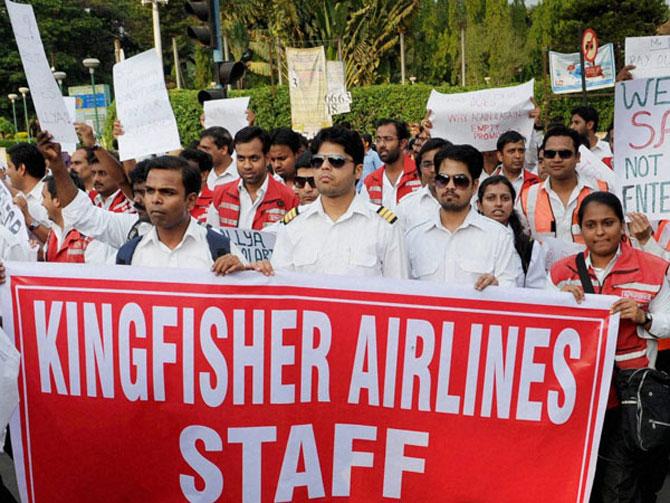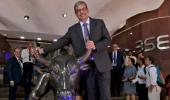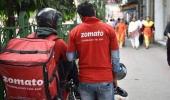Ten years after Kingfisher Airlines was grounded, its former employees continue to wait for their dues.

On Monday, the Supreme Court awarded a four-month sentence to the grounded airline’s flamboyant owner Vijay Mallya in a contempt case.
The apex court also ordered him to deposit $40 million plus interest in four weeks to avoid attachment of his properties.
While the government and banks have partially recovered their dues through asset seizures or sale of pledged shares, the airline’s staff has been left high and dry.
“An official liquidator was appointed by the Karnataka High Court and we submitted our claims in 2019.
"We don’t have any clarity on how employees’ dues will be paid and haven’t received a penny yet,” said Aniruddha Ballal, a former Kingfisher Airlines employee.
Ballal, who now works for a ground handling company, stressed that the government must exert pressure on the UK to extradite the fugitive businessman.
“His lifestyle hasn’t changed while former employees continue to suffer,” Ballal remarked.
A former pilot with the airline said that putting Mallya behind bars would not bring any relief for the airline’s staff.
“Rather, Mallya should be given a chance to clear his dues and his name.
"The government must look at creating a mechanism to help us.
"Employees are the most vulnerable and none of the governments stood by us,” he said.
Mallya launched Kingfisher Airlines in 2005.
With new modern aircraft with in-flight entertainment, free meals, and a loyalty programme, the airline offered premium services.
In 2007, it increased its presence with the acquisition of Air Deccan, and subsequently placed a large order that included Airbus A350 and super jumbo A380s aircraft.
But competition, high fuel costs, and the debt-fuelled expansion led to its downfall.
Two years before its eventual collapse, lenders restructured its debt, converting a part of it into equity and providing a two-year moratorium on loans.
On its part, Kingfisher Airlines promised to cut costs and decided to make changes to its business model.
But in December 2011, a year after the debt restructuring, State Bank of India said its Rs 1,500-crore loan with the airline had turned into a non-performing asset.
Soon, other banks, too, declared Kingfisher’s loans as NPAs.
Mallya himself made presentations seeking funding for the airline’s revival, but his plea was rejected.
In October 2012, the airline’s employees stopped work to protest non-payment of salaries and the Directorate General of Civil Aviation suspended its permit. It did not fly thereafter.












 © 2025
© 2025